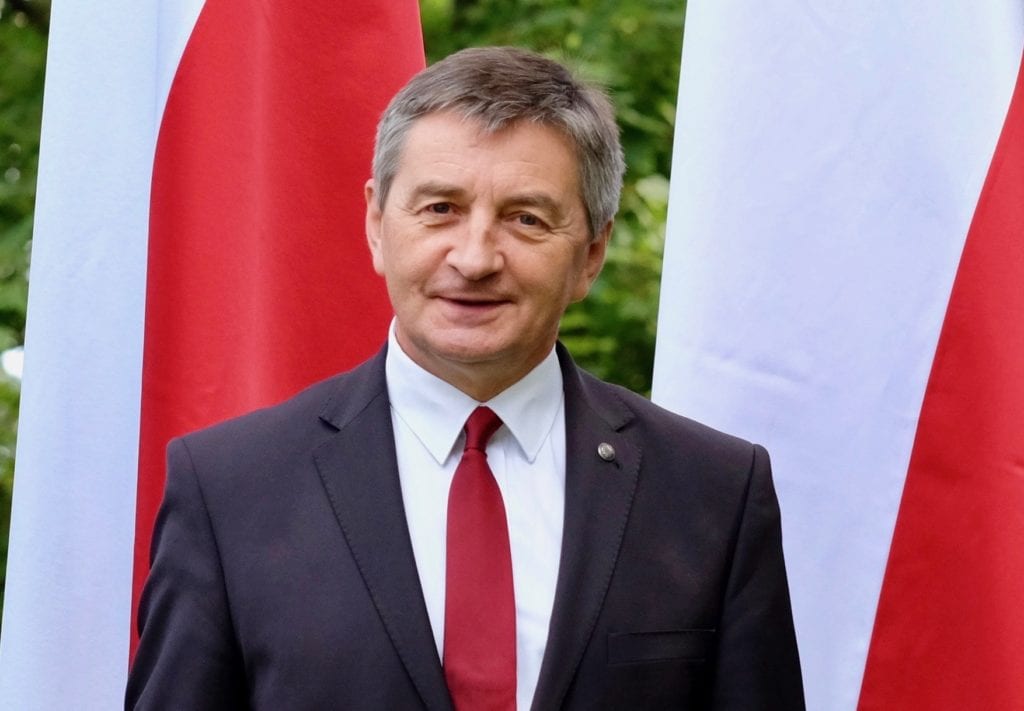- We have been members of the European Union for 15 years now. Poland has an important place in these structures and today we have greater ambitions than just to stay. We want to develop the idea of community, strengthen our position and the prestige of a wise, just and equal EU. - according to Speaker of the Sejm Marek Kuchciński.
After the fall of communism in Poland we fought to return to the family of free nations, sovereign countries, economically strong, politically independent, open to cooperation. May 1st is a labor day and a symbolic date, because in fact our road to unity with democratic countries of the Old Continent began much earlier. It required enormous work from all Poles. Economic transformations, which allowed us to meet the formal requirements, were paid for with effort and sacrifices.
Our presence in the EU is an economic success. Since accession, Poland's gross domestic product per capita, measured by purchasing power value, has increased from 49.5% of the EU27 average in 2003 to 70.1% in 2017. 70.1% in 2017 - an increase of over 20 per cent! Since the beginning of its membership in the Union Poland has paid about EUR 53 billion into the budget and received almost EUR 170 billion. This means that for every euro paid in, Poland received more than 3 euros.
Exports of goods, within the EU single market, reached €180 billion in 2018 and were five times higher than at the time of accession. The Polish countryside has also benefited measurably. Since the beginning of membership, farmers have received EUR 54 billion, including EUR 33.5 billion in direct payments. Among other things, thanks to this, the nominal income of rural residents in the years 2004-2016 increased by 118%.
We are able to take advantage of the opportunities offered by the united Europe. Our economy is growing and it is time for as many Poles as possible to benefit from this prosperity. Now we are proving that to this economic leap we can add an increase of social sensitivity, support of those compatriots who worked hard for this success. Because the EU is an opportunity for development, but it is we, with our work, dedication and commitment, who create this prosperity. It is not given to us and will not be possible without our wisdom and solidarity.
That is why we say openly in the EU that we want to be treated with the respect due to the people who contribute to the EU economy. We want our sovereignty, diversity, history and right to pursue national interests to be respected, which are not contradictory to the idea of community of nations. The European Union should remember its Christian roots. For Europe is not only a market without a soul and its aim is also to protect its citizens from the dangers of the contemporary world.
Europe is an idea that was actually born centuries ago. An honest and inquisitive historian will reach beyond the European Coal and Steel Community born out of the need to bring together countries bled dry by the tragedy of World War II. He will look back to the great tradition of the Polish-Lithuanian union, which at the end of the Middle Ages and at the beginning of modern times, drawing on the legacy of the Jagiellonian dynasty, gave Central Europe a powerful state of many nations and cultures, which functioned for many centuries and was created through negotiations rather than conquests. Thus, with the great role of parliament shaping republican and civic attitudes. We can also go back almost 200 years, to a document dated 3 May 1831 written by Wojciech Bogumił Jastrzębowski, a young scholar at the time, a participant in the November Uprising, entitled "Wolne chwile żołnierza polskiego, czyli myśli o wiecznym pokoju między narodami ucywilizowanych". In his treatise, Jastrzębowski wrote about Europe as a federation of nations speaking different languages but subject to the same general political principles. It was important to preserve national distinctions. Jastrzębowski wrote about unification as a chance for peace. So even in the times of the nineteenth-century struggle for independence, Poles were thinking in terms of a broader good, the future of the continent, not just their own country.
Today, when we celebrate our accession to the European Union, it is worth remembering those generations of Poles who fought for the right to be part of the community for hundreds of years. It is worth remembering the work they put in for us to be where we are today. May 1st is still a holiday of people working for a free, economically and politically independent Poland.
Marek Kuchciński



